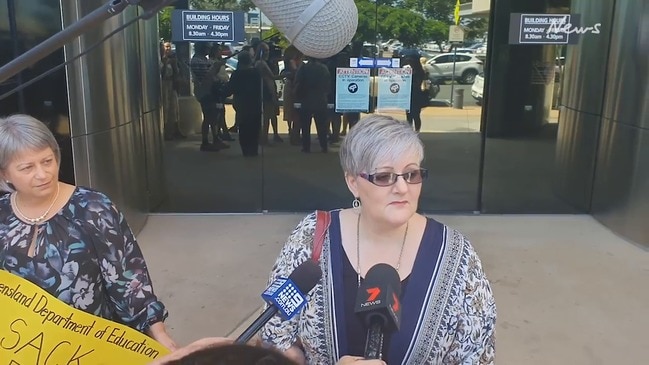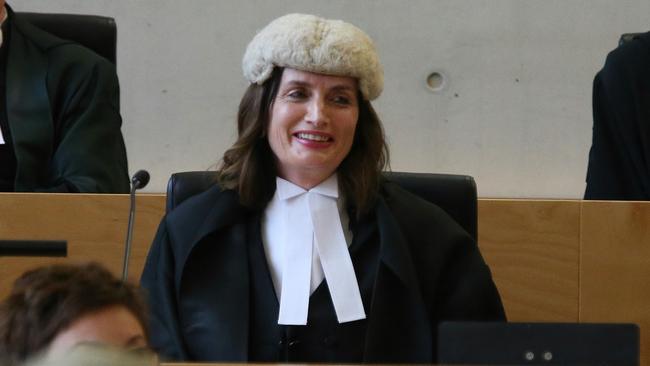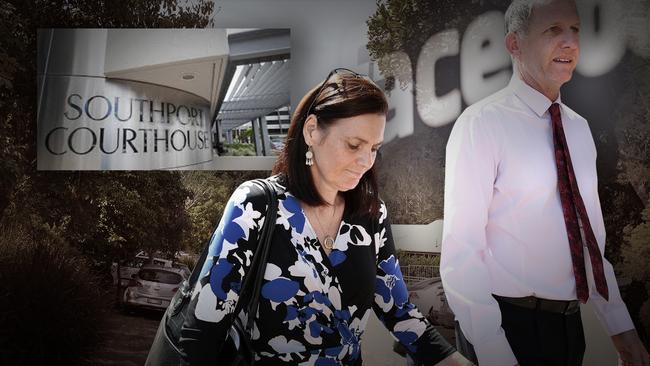CHARACTER assassination played out on social media needs to be kept in check by courts while still allowing “breathing space for expression”, according to the judge who presided over the landmark Tamborine Mountain case.
District Court Judge Catherine Muir noted in her 140-page decision yesterday that people had a right to use defamation laws to sue if they believe their reputation has been hurt by untruths but that shouldn’t trample on the freedom of speech.

She said courts could only use “existing defamation” law to assess comments made online in a “growing” number of Facebook and other social media defamation lawsuits.
She noted that “considerable legislative focus and solution” was needed to look at complex defamation law issues in online forums.

Speaking after yesterday’s decision, Derek Wilding of the Centre for Media Transition at the University of Technology Sydney told The Courier-Mail that it was widely acknowledged defamation law is now outdated.
“The good news is that there’s a proposal to reform defamation law in Queensland as well as the other Australian jurisdictions,” he said.
“One of the ideas is for a ‘serious harm’ test.
“Matters that don’t meet that threshold would be prevented from going to trial.”
Mr Wilding said a joint effort by the federal government and the states and territories is currently exploring proposals to update defamation law.
“But even if the law does change, people will still need to ask themselves whether their online comments might harm someone’s reputation.
Mr Wilding said that internet users needed to be really cautious about what they post online.
“It’s not Facebook that’s being sued for defamation in Australia – it’s the people who post comments and the people or organisations who own the pages,” Mr Wilding said.
Mr Wilding said lawsuits over posts on social media, in a blog or an online review or even an email or a text message, “chew up time and money” including legal fees that can dwarf any award the plaintiff wins at the end of the case.
“Sometimes there has been real damage to a person’s reputation, but some cases are based on claims that many of us would consider trivial,” Mr Wilding said.
“Occasionally there are big awards of damages, but sometimes the plaintiff only receives a few thousand dollars.
“Part of the problem is that we don’t assume we’re a ‘publisher’ when we post a comment, but the law sees it differently.”
Law academic Michael Douglas said defamation law reform was likely to appear this year, but cases like this would still be in the courts and reforms may not help regular mums and dads sued for defamation.
“Keyboard warriors should take a breath and go for a walk before writing something spicy on social media,” Mr Douglas said.
“The reform process ought to have considered low-cost mechanisms for individuals to resolve defamation disputes involving small claims.
“A defamation claim worth under $20,000 would be considered small, but for the people involved, the stakes may not be higher.
“There should be a way to defend yourself in defamation without bankrupting yourself on legal costs.’

MORE MT TAMBORINE:
WHAT THEY SAID, AND WHAT IT COST THEM
PRINCIPAL MADE MOUNTAIN OUT OF MOLEHILL
‘ALL WE DID WAS STICK UP FOR OUR CHILDREN’


Man fighting for life after being pulled from ocean
A man was pulled from the water at a Sunshine Coast beach after suffering potentially life threatening injuries.
Simple, heartbreaking request that allegedly got terminally ill man killed
A woman accused of killing her terminally ill partner, who wanted more time to consider voluntary assisted dying, has been denied bail after she allegedly told a carer she “couldn’t take it any more”.